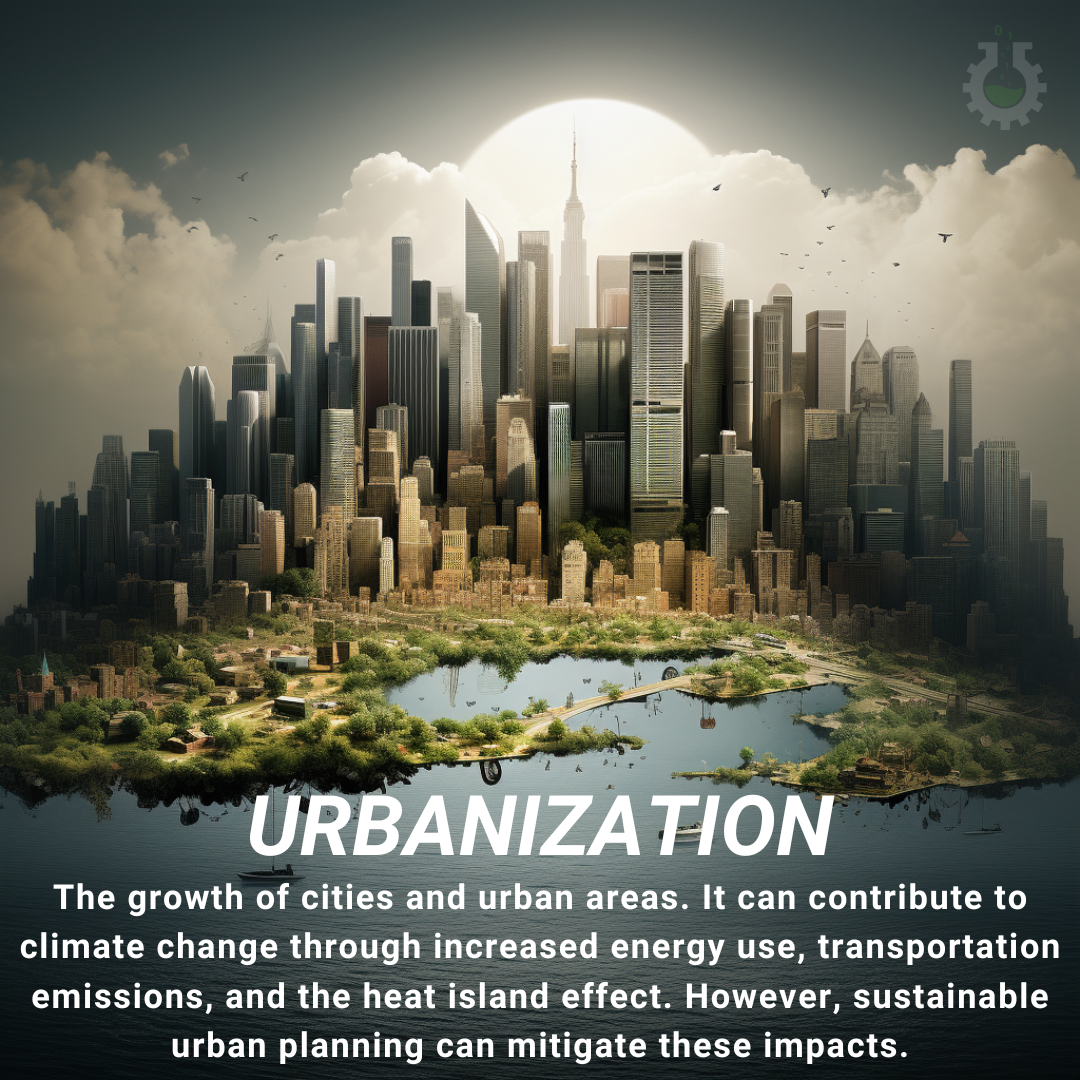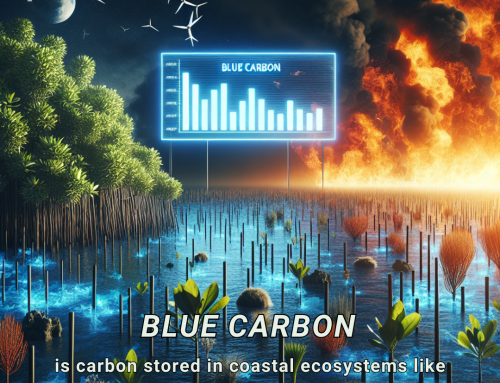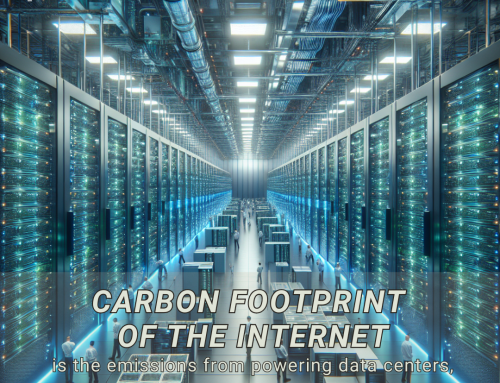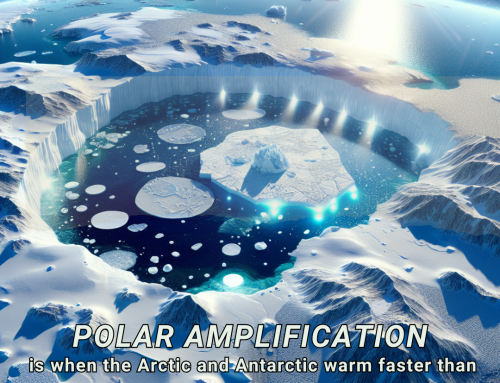Project Description
Urbanization is the process of population concentration into cities and urban areas, often accompanied by the expansion of infrastructure, industry, and housing. This shift from rural to urban living can influence climate change in several ways.
Connection to Climate Change: Urbanization can contribute to climate change through increased energy consumption, transportation emissions, and the heat island effect. As cities grow, there’s a higher demand for energy, resulting in increased greenhouse gas emissions from power generation. Urban transportation systems, often reliant on fossil fuels, also contribute to emissions.
Additionally, the heat island effect occurs when cities trap heat due to concrete and asphalt surfaces, resulting in higher temperatures than surrounding rural areas. This effect can exacerbate local climate conditions.
However, urbanization also presents opportunities for climate mitigation and adaptation. Compact cities with efficient public transportation systems can reduce per capita emissions. Green building practices, sustainable urban planning, and the preservation of green spaces can help mitigate some of the negative impacts of urbanization on the climate.








